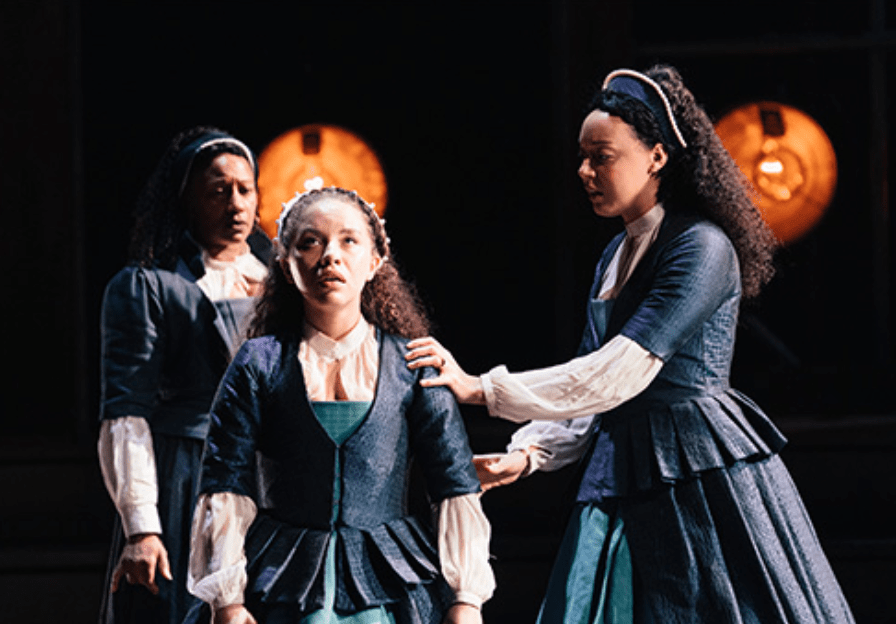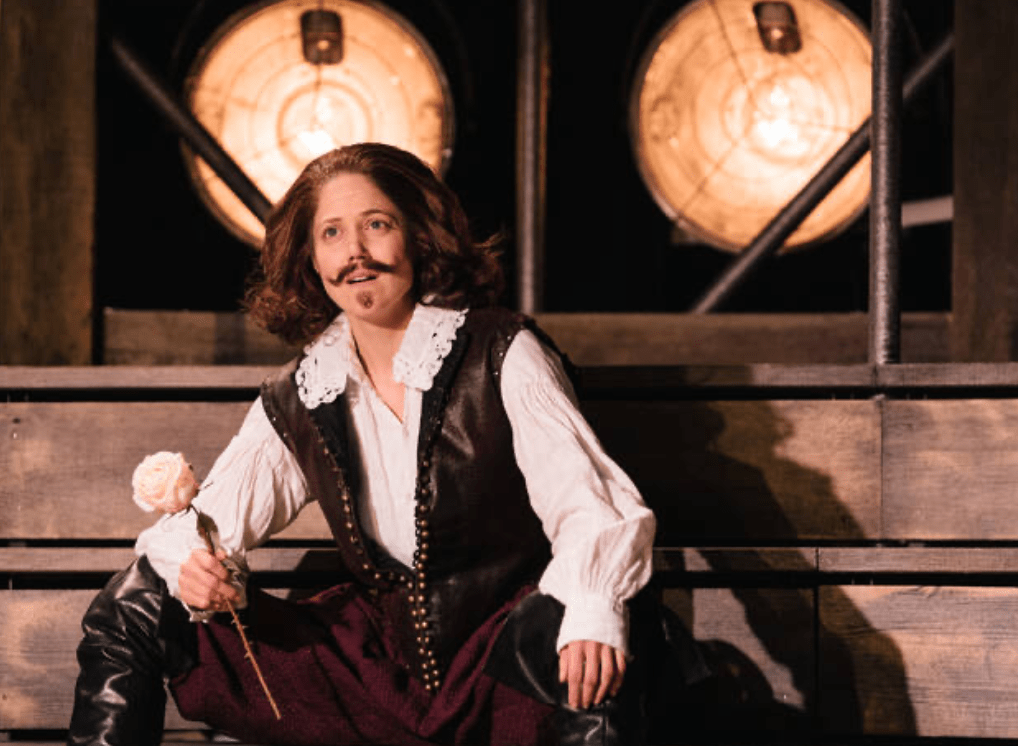If there’s one good thing that has come out of lockdown, it’s the release of archive recordings that are finally being allowed to see the light of day. The act of watching theatre from the comfort of our own homes has, slowly but surely, been embraced as a temporary new ‘normal’, and whilst it will never beat the thrill of live theatre, it’s a pretty nice alternative whilst we remain unable to attend the theatre. There is a lot on offer to stream this month, from recordings to live events, and one of the most hotly anticipated was the release of the recording of Emilia.
This rousing production played at London’s Vaudeville theatre last year, after transferring from The Globe. It tells the story of Emilia Bassano, renaissance poet and contemporary to the great William Shakespeare. She wanted her voice to be heard, and fought for her entire life to be seen as more than an obliging wife and mother. She was constantly told to behave, and her rebellious behaviour led her to become the subject of drama and rumour as the possible ‘dark lady’ of Shakespeares sonnets. As she struggled not to be silenced in her lifetime, this play gives Emilia her voice back and allows her story to finally be told.

The all female cast play a variety of characters, both female and males, with flair and passion. The role of Emilia is shared by three actresses, each playing the character at different stages of her life. Saffron Coomber plays the poet in her youth, just beginning to realise that there is something different in her. She doesn’t want to be tied down as a lady of court, married to someone she doesn’t love. She wants to write, she wants to be heard. As she grows, becomes more outspoken and passionate and becomes a mother, Adelle Lenonce becomes Emilia. With her husband Alphonso (Amanda Wilkins) flittering their money away and her desire to be taken seriously growing, she takes to the stage at one of Shakespeare’s performances to accuse him of stealing her words. Her actions are powerful, impulsive and meaningful, each as important as the last.

Clare Perkins plays the older Emilia, and alongside Coomber and Leonce, they create a force to be reckoned with. Perkins’ older Emilia acts almost as a narrator for the piece, looking back at her own life as she grew up and found her voice, before telling the story herself later in the performance. Each actress brings something unique to the character, with each building on what the last created. This clever decision to have three actress share the role illustrates the fact that as Emilia grew, her drive, her intelligence and her passion grew as well. Even as the young girl throwing a temper tantrum at her mother’s feet, she knew that she had the power to speak out and change the world, and as she matures, she learns how that power can be used in her writing.
This production balances comedy with drama. Charity Wakefield’s Shakespeare is over the top, boasting and full of himself, and Carolyn Pickles had the audience laughing as both Lord Carey and washer women Eve. The book is clever, intricate and witty, creating intelligent humour before throwing in serious, powerful moments that catch the audience off guard. The Emilia’s deliver momentous monologues full of fire and passion that truly highlight the strength that Emilia held within herself and her desire to never let that fire be extinguished.

The staging is simplistic with one set used throughout and movement and music cleverly used to keep the action rolling forwards. I wasn’t expecting so much music and dancing for a play that covers so many important topics, but I have to say that I really enjoyed these moments where renaissance ladies met modern beats and styles. As someone who has always struggled with Shakespeare, some of the more complex language was lot on me, but subtitles helped for the most part.
Overall, Emilia’s story is one that deserves to be told and remembered, and this production ensures that it will be. The all female cast illustrates the women power themes and the entire cast delight in that power in the show’s roof raising finale. I can image that once the theatres are open again, it won’t be long until we see this one back on a London stage.
